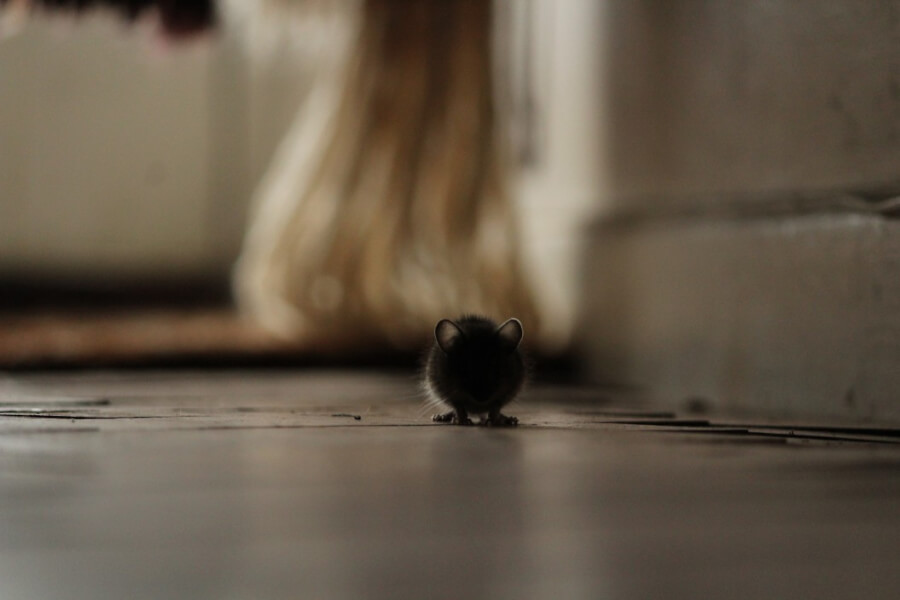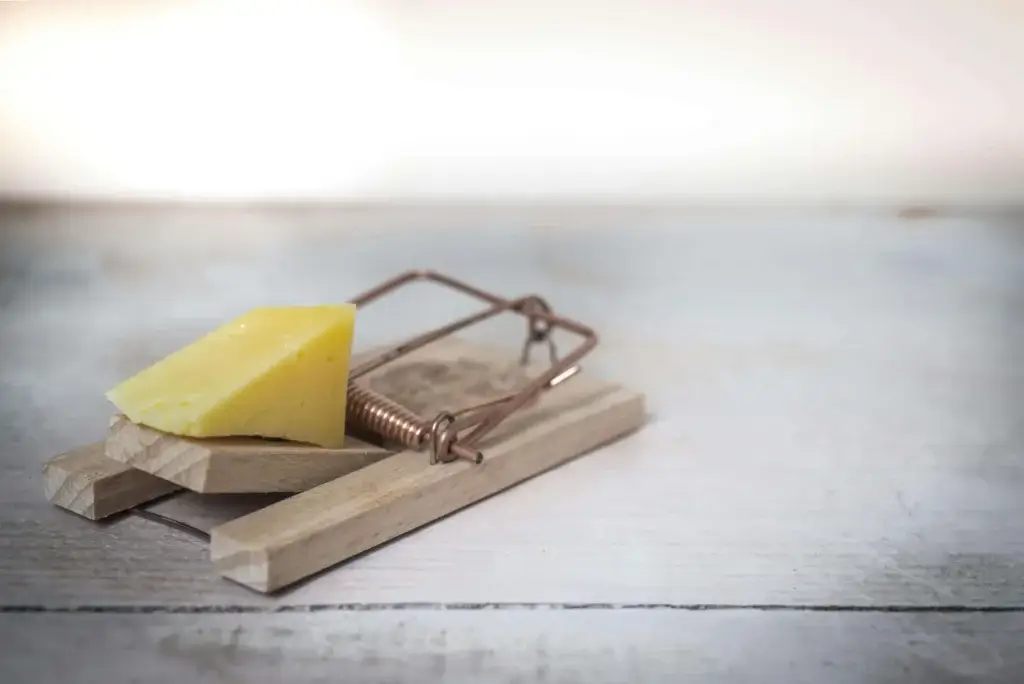If you’re asking the question, “do rats cause damage?” Yes, they do! In fact, dead or alive, rats are tragic in your home. They can cause disease, infections, contaminate food, and cause widespread damage. How do you get rid of rats in your home?
Before they send you to the hospital to seek remedy or send you back to the workshop to get repairs for the household furniture they damaged, it’s better to eliminate them as soon as you can.
TLDR: To get rid of rats, start by keeping your home clean and well-organized to discourage their presence. Seal any holes or gaps around your home to block their entry points. Store food securely and dispose of trash properly to avoid attracting them. Regularly inspect your home for signs of rats, such as droppings, noises, or damage. Use traps and baits carefully to catch or eliminate them. If the problem persists or seems overwhelming, don’t hesitate to call pest control experts for safe and effective removal.
Here’s A Starters’ Advice On HOW TO GET RID OF THE RATS’ Mess In Your Home

1. Keep Your Home Clean
The first thing to do so rats or other rodents won’t be in your home in the first place is to ensure that your home is clean.
Begin by thoroughly organizing your bedroom to make it easier to detect a rat’s presence. Ensure your clothes are stored neatly and use sealed containers to prevent access. A well-organized space is the first step in rat prevention.
Move on to your living room and other rooms in the home and arrange them well. If you have books, utilize a closable bookshelf with a glass cover to prevent rats from accessing them.
5 Warning Signs Of Rodents In Winter
2. Close Gaps And Seal Holes
It might be challenging to keep rats out of your home entirely, but you can implement the necessary mechanisms to prevent them from entering the structures of your home.
To prevent rats from entering your home, begin by thoroughly inspecting your property for potential mice entry points. Seal any visible holes or gaps using sturdy materials such as copper mesh, which is highly effective in deterring rats. Also, consider the roof lines; ensure that no tree branches are in contact with your home’s structure, as rats can use these as access points. By eliminating these entryways, you’ll make it significantly more challenging for rats to infiltrate your living space.
3. Proper Food Storage And Disposal Of Trash In Your Home
Food, food remains, and other forms of trash are leading attractors of rats and many other pest control problems we see in your home or business.
Maintaining proper food storage and effective trash disposal is essential to deter rats from your home. In your kitchen, ensure that your food storage is secure. Store food in lockable shelves or refrigerators to keep it out of the reach of rats. For items that require aeration, consider using shelves with copper mesh to prevent rodent access. Invest in rat-proof containers for storing various types of food. By following these practices, you can significantly reduce the attractiveness of your home to rats and other pests.c
Now, move to your kitchen and ensure it’s tidy. Clean eating utensils as soon as you use them. Dispose of all leftovers in trash bins or containers with closing lids. Lastly, get rid of the trash as soon as the garbage truck comes by.
4. Regular Home Inspection
It can be hard to detect the presence of rats until they have done significant damage. Waiting for significant damage to address rats’ issues can cost you more to recover from the damage.
Frequent home inspections are crucial in identifying rat infestations early and taking immediate action to prevent further damage and higher recovery expenses. By routinely inspecting your home, you can proactively detect signs of rats, including chewed wires, damaged storage containers, books, clothes, or even roof lining.
Additionally, listen for rat and mouse movement and presence, which can be indicated by shiny black droppings or audible sounds like chattering, hissing, or squeaking. Be attentive to the presence of a pungent, musky odor, as it’s a common sign of rats or mice.
Finally, watch for dusty areas in your home, where four-toed and five-toed footprints can indicate the presence of rats and mice. These signs will guide you in identifying their path and taking appropriate measures to manage the infestation.
Below Are Some Of The Signs To Watch Out For When Inspecting Your Home:
- Damage Assessment: As you inspect your home, find out whether there’s rat-related damage. If you notice chewed electricity cables, storage containers, books, clothes, or even roof lining, then you should get ready to fight them off.
- Rat And Mice Movement And Presence: Watch out for shiny black droppings since that could be an indicator of rats’ infestation. If you hear chattering, hissing, and squeaking sounds, that’s also a very good indicator of rats.
Additionally, be careful if you smell a pungent and musky odor as you inspect your home since that’s a common sign of rats or mice.
Lastly, carefully observe dusty places in your home. Four-toed and five-toed front and back footprints indicate the presence of rats and mice as well. You can use those signs to trace their path and tame them. You can also spot chewed substances along the path of rats.
The Best Ways To Exterminate Rats, Mice, Or Other Rodents In Your Home

Since you’ve already checked and confirmed that there are indeed rats or other rodents in your home, what should you do next? You can try getting rid of them by yourself, or you can get quick, safe, and professional assistance from expert providers of rat removal services.
Here Are The Recommended Ways To Get Rid Of Rats From Home Using Either Traps, Baits, Or Both.
1. Trap The Rats, Mice, Or Other Rodents
Rat traps are easy, and you can use them for a long period. The only precaution is to do a regular inspection of where you’ve placed the traps, change the bait if it’s rotting, and remove and dispose of the captured rodent.
The best place to set up rat or mouse traps is the path that rats use to access your home, which can be known through regular home inspection (as mentioned above). For instance, if you spot rodent droppings in an area of your home, then that’ll be an ideal place to place the trap.
The most common traps are snap traps, live traps, and glue boards. It’s important to place the traps carefully to prevent interference from pets and children.
How To Identify A Rodent Problem
2. Use Baits For Rodents
Baits are designed to attract rodents so that they’re captured or consume the bait and die. You have two types of baits to consider. You can use bait that you can attach to traps or those that will poison the rats to death.
If you choose the baits that poison rats, you should be careful to make a closer follow-up as soon as you notice a bite on the bait. In most cases, the rodent will die as it escapes, and if you don’t check it out in time, it might rot and disturb the home’s atmosphere.
Industry rodenticides serve as the best baits, in which you can get a supply from a pest control company.
For baits attached to traps, you’re likely to find the rodent captured by the trap. However, if you find a bite on the trap, the rodent might’ve gotten away, and you should inspect a prospective rodent path to find out whether the rodent died on the way.
If the bait was not poisonous, then you don’t need to follow up on the rodent and should instead reposition your trap to watch for another chance to capture the rodent.
The most common types of bait include bait stations, bait traps, and rodenticides.
Conclusion
To get rid of rats, mice, or other rodents from your home, start by keeping your home clean, sealing the gaps and holes, storing food properly, and inspecting your home regularly for rodent infestation. As you inspect your home, watch out for rodent damages and signs of their presence and movement.
If you’re trying to figure out how to get rid of rats, don’t hesitate to call our team of pest control experts at Gunter Pest & Lawn. We’re here to provide you with professional assistance. Call us today!
Rat Removal FAQ
Q: How Many Rats Usually Live Together?
Answer: Rats are social creatures, and they often live in groups. A typical rat group, or “mischief,” can consist of several rats living together, which may include adults, young rats, and a dominant male and female.
Q: Where Do Rats Hide During The Day?
Answer: Rats are nocturnal animals, which means they are most active during the night. During the day, they tend to hide in secluded and dark places like burrows, wall voids, attics, basements, and behind furniture or clutter.
Q: How Do You Know When All The Rats Are Gone?
Answer: Knowing when all rats are gone from an infestation can be challenging. You can monitor for signs like no new droppings, no scratching or rustling sounds, and a lack of rat sightings for a prolonged period. However, it’s advisable to consult a pest control professional to ensure complete eradication.
Q: How Long Does It Take For Rats To Disappear?
Answer: The time it takes to eliminate a rat infestation can vary. It depends on the size of the infestation, the control methods used, and how well you implement prevention measures. It can take several weeks to months to completely rid your home of rats.
Q: What Time Of Year Are Rats Most Active?
Answer: Rats are active year-round. However, their activity may increase during the fall and winter months as they seek shelter and food indoors. It’s important to remain vigilant in all seasons to prevent and control rat infestations.
Q: What Size Hole Can A Rat Get Through?
Answer: Rats can squeeze through surprisingly small openings. A rat can typically fit through a hole or gap that is about 0.5 inches (1.3 cm) in diameter. It’s important to seal any openings larger than this to help you get rid of rats.
Be Sure To Check Out Our Pest Control Services:
Termites — Lawn Care — Commercial Pest Control — Ants — Pest Control









